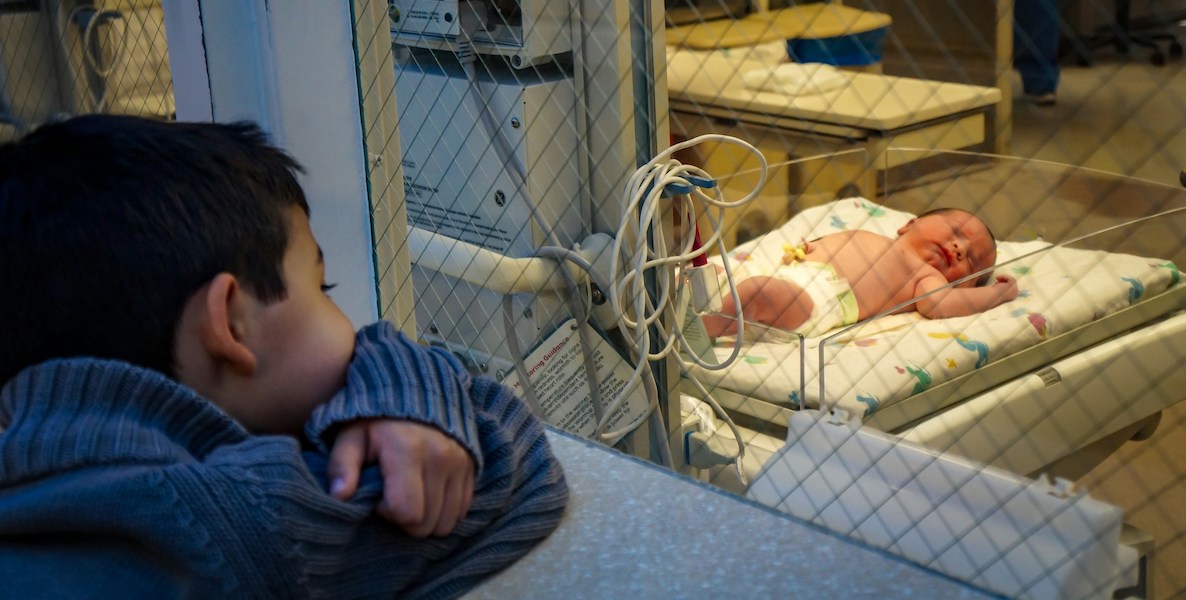Over the past month, the scientific community has been rocked by chaotic disruptions that could seriously damage scientific innovation in the United States. These changes are devastating federal research funding, politicizing the scientific process, attacking programs that support diversity in science, and directly harming the livelihoods of scientists, students and staff. The government has cut billions of dollars in funding from two scientific institutions that bring significant medical and economic benefits to Pennsylvanians: the National Institutes of Health (NIH) and the National Science Foundation (NSF). In 2023, NIH generated $5.2 billion in economic activity in PA and supported over 20,000 jobs.
I am very concerned by these funding cuts, not only as a scientist, but also as someone who cares deeply about science’s role in improving the lives of our community members.
While completing my PhD at the University of Pennsylvania, I researched how children’s brains develop. Kids are curious learners and often behave like scientists themselves, eagerly exploring the world around them. Thanks to decades of NIH- and NSF-funded research, we have extensive knowledge on how children’s brains are sculpted by enriching early experiences.
Young children are also vulnerable — adverse childhood experiences, like exposure to abuse or neglect, can have negative long-term effects on brain development and health. Scientists are working with communities to develop support programs that heal and prevent trauma. In 2019, PA became a Trauma-Informed State, promoting policy reforms that build resilience in high-risk environments. This progress could now be in jeopardy, especially in light of the ongoing uncertainty about federal funding for critical social services like food assistance and childhood education.
Investing in positive child development also has immense economic benefits for all Americans.
I encourage each of us to be an advocate for science, by contacting our representatives about the critical role of NIH and NSF funding.
By helping children thrive, we substantially reduce later taxpayer costs related to the far-reaching impacts of poverty, poor health, school dropout, etc. None of these advancements would be possible without research funded by institutions like NIH and NSF. Child development research has also contributed to important policy debates on anti-poverty initiatives and materially improved children’s lives: In 2021, the expanded Child Tax Credit lifted approximately 2.9 million children out of poverty.
Neuroscientists are poised to make even more exciting discoveries, because of data-sharing initiatives that make it easier to collaborate. For example, the NIH-funded HEALthy Brain and Child Development Study is the largest long-term study of early brain development in the U.S., with sites at the Children’s Hospital of Philadelphia and Pennsylvania State University. This is a massive scientific undertaking. However, on February 7, the government slashed funding to universities and hospitals for “indirect costs” — the resources that are required for research, like lab spaces, technical support, and salaries of scientists and staff. Due to budget cuts, Penn will also be reducing graduate admissions and rescinding acceptances. It takes years to build labs and recruit promising research talent. Such a haphazard disruption means that we could soon experience a drop in trained neuroscientists, which will hurt job opportunities and medical advancements in PA.
Finally, NIH also stimulates technological innovation in the private sector. In 2023, PA received $181 million from the NIH to support small business innovation projects. Scientists also bring their skill sets to jobs in industry and public service.
I myself work as a behavioral scientist for a wellbeing-focused startup. My scientific training gives me a unique voice at my company, because I’ve learned how to ask the right questions and how to make sense of messy data. Many scientists bring to the table this same capacity for data-driven solutioning, especially in complex spaces where there are no clear answers. Indeed, as a society we face immense collective action challenges, like climate change, that will require the input of bold, interdisciplinary problem-solvers. We all stand to benefit from supporting scientists who can serve as touchpoints between basic science and public needs.
I am deeply grateful that I was trained as a scientist in Philadelphia, where I learned from hundreds of bright, resilient children here. Because of scientific advances, we are better equipped today to help children thrive. I encourage each of us to be an advocate for science, by contacting our representatives about the critical role of NIH and NSF funding.
Anne Park, PhD, is a behavioral scientist with a tech startup. She received her PhD in psychology from the University of Pennsylvania, where she conducted research into the impact of adversity on brain development.
The Citizen welcomes guest commentary from community members who stipulate to the best of their ability that it is fact-based and non-defamatory.
![]() MORE ON THE CONSEQUENCES OF THE 2024 ELECTION
MORE ON THE CONSEQUENCES OF THE 2024 ELECTION



